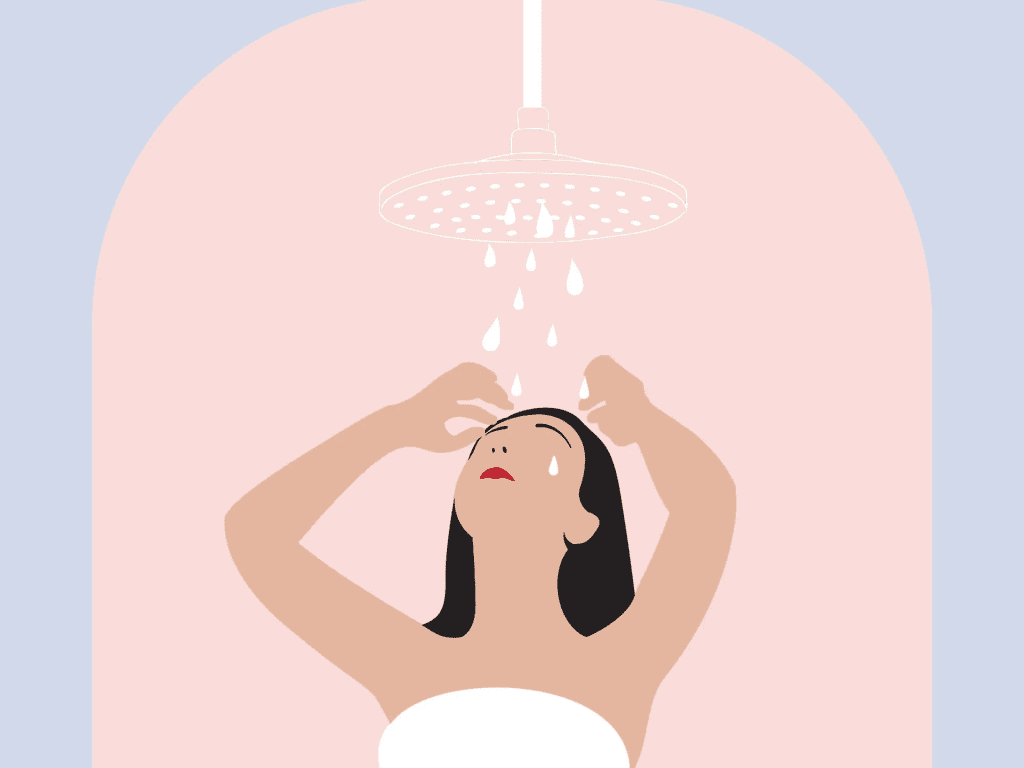Showering is a key part of daily hygiene, but how often you should shower can be a matter of debate. While some people believe in the importance of daily showers, others argue that less frequent bathing can be better for your skin. So, what’s the ideal showering routine? The answer depends on a variety of factors including your skin type, lifestyle, and personal preferences. Let’s explore everything you need to know about how often you should shower.
Understanding Your Skin Type and Showering Frequency

One of the most critical factors to consider when determining your showering frequency is your skin type. Your skin’s needs should guide how often you wash up.
- Dry or Sensitive Skin: If your skin tends to be dry or sensitive, frequent showers may do more harm than good. Over-showering can strip your skin of its natural oils, causing irritation, flakiness, and even eczema. In this case, showering every two to three days may be sufficient, especially if you’re not engaging in activities that lead to heavy sweating or exposure to dirt.
- Oily Skin: On the other hand, if you have oily skin, you might benefit from daily showers. Oily skin can lead to clogged pores and acne, and a daily wash can help remove excess oils, keeping your skin clear and fresh.
- Normal Skin: For those with normal skin types, showering once a day or every other day is usually a good balance. This can be adjusted based on your level of physical activity and personal preference.
Activity Level and Lifestyle Considerations
Your daily activity level plays a significant role in how often you should hit the shower.
- Active Lifestyle: If you’re highly active—working out regularly or spending time outdoors—you’ll likely need to shower more frequently. Sweat, bacteria, and dirt can build up on your skin after exercise, and regular showers are essential to avoid body odor, acne, and other skin issues.
- Sedentary Lifestyle: If you have a less active lifestyle or spend your days indoors, you might not need to shower daily. On low-activity days, every other day may be enough to maintain proper hygiene without over-washing.
- Climate Factors: Environmental conditions also come into play. If you live in a hot, humid climate, you may need more frequent showers to stay clean and refreshed. On the other hand, in colder, drier climates, showering less often can help preserve your skin’s moisture.
Health and Hygiene Needs
Maintaining hygiene is about more than just feeling fresh—it’s about your overall health.
- Removing Bacteria and Dead Skin Cells: Showering removes dead skin cells, oils, and bacteria that build up throughout the day. However, over-showering can cause more harm than good by drying out the skin and disrupting its natural barrier.
- Post-Exposure Showers: After activities like gardening, swimming in chlorinated pools, or working in polluted environments, it’s essential to shower to remove any harmful chemicals, dirt, or bacteria from your skin.
- Medical Conditions: For those with skin conditions like eczema, psoriasis, or rosacea, it’s crucial to consult a dermatologist. Over-showering can exacerbate these issues, so it’s often recommended to reduce the frequency and use gentle, moisturizing cleansers.
Cultural and Personal Preferences

Cultural norms and personal habits can greatly influence how often you feel the need to shower.
- Cultural Norms: In some cultures, daily showers are the norm, while others see less frequent bathing as acceptable. For instance, in parts of Europe, showering every other day is more common, whereas in the U.S., daily showers are the standard for many people.
- Personal Preferences: Some people simply prefer the feeling of showering daily for the sense of freshness it brings. Others may prioritize maintaining the natural oils in their hair and skin, choosing to shower less frequently. The key is to find a balance that keeps you feeling clean without over-washing.
TikTok Debate: The Viral Twice-a-Week Shower Routine
Recently, a TikTok user named Allison went viral after sharing her personal showering routine—she showers only twice per week. Her reasoning? She believes it helps preserve the natural oils in her hair and skin, preventing dryness. Her routine has sparked a heated debate online, with some people supporting her approach, while others are shocked at the idea of skipping daily showers.
This incident highlights just how varied opinions can be on the subject of shower frequency. While Allison’s routine works for her, it might not be suitable for someone with a more active lifestyle or different skin needs. The key takeaway here is that showering habits should be tailored to individual preferences, body chemistry, and activity levels.
How to Find Your Ideal Showering Routine

Ultimately, there’s no one-size-fits-all answer to how often you should shower. However, there are some general guidelines to help you create a routine that works for you:
- Listen to Your Skin: If your skin feels dry, tight, or itchy, it could be a sign that you’re showering too often. On the flip side, if you notice excess oil, acne, or body odor, it may be time to shower more frequently.
- Adjust Based on Activity: Shower more often after physical activity or exposure to dirt and pollutants, but feel free to skip a day when you’re less active.
- Choose the Right Products: Use gentle cleansers and moisturizers to protect your skin’s natural barrier, especially if you shower frequently. For those with sensitive skin, fragrance-free and hypoallergenic products can help prevent irritation.
- Consult a Dermatologist: If you’re dealing with skin issues like acne, eczema, or psoriasis, a dermatologist can help you determine the best showering routine and products for your needs.
Conclusion: Balance is Key to Healthy Showering Habits
How often you should shower depends on a combination of factors: your skin type, lifestyle, health needs, and personal preferences. While daily showers might be ideal for some, others may find that every other day works better for their skin. The important thing is to strike a balance that keeps you clean and comfortable without causing harm to your skin’s natural oils and moisture.
Ultimately, there’s no right or wrong answer—just a routine that works best for you! Listen to your body, be mindful of your environment, and adjust as needed. Your skin will thank you for it!


